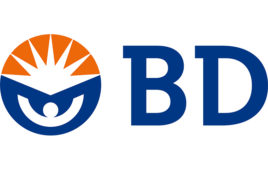LINDA A. JOHNSON AP Business Writer TRENTON, N.J. (AP) — Drugmaker Wyeth on Wednesday sued the Food and Drug Administration to block the sale of a generic rival to its intravenous antibiotic Zosyn, claiming the generic is not an equivalent product and could harm critically ill patients. Madison, N.J.-based Wyeth filed the lawsuit in U.S. District Court in Washington, D.C., seeking a temporary restraining order and a preliminary or permanent injunction. The lawsuit seeks to prevent Orchid Chemicals & Pharmaceuticals Ltd. of Chennai, India, from selling a generic version of Zosyn that the FDA approved last week. The suit also asks the court to order the FDA to withdraw its approval of Orchid’s products or any generic versions that aren’t exactly the same as Zosyn. Wyeth’s head of global medical affairs, Joe Camardo, said patient safety is at stake and that Orchid’s product could lead to preventable medical errors. “Over 2 million people get Zosyn in any given year,” Camardo told The Associated Press in an interview. Many are critically ill patients with very serious infections, so hospital workers often rush to set up an intravenous line to rapidly feed in both Zosyn and, often, a standard IV solution to boost blood volume and pressure. With an older formulation of Zosyn, which Wyeth claims is what Orchid would be selling, if the same IV line is used, Zosyn can mix with the intravenous solution and cause a chemical reaction that inactivates the antibiotic, limiting how much patients get. “They wouldn’t get the full dose,” Camardo said. That could mean the patient doesn’t get enough antibiotic to stop the infection in time. Having two Zosyn versions in use could cause confusion when hospital workers are rushing to save very ill patients, Camardo added. The lawsuit calls the FDA’s approval of Orchid’s products “arbitrary, capricious, an abuse of discretion” and “unlawful.” The approval “permits the marketing of a generic drug product that cannot be safely used in the same manner as the branded product” and “seriously endangers patient health,” the lawsuit states. Wyeth discontinued the old version in October 2005, when the FDA approved a newer version that adds two ingredients to prevent the harmful chemical reaction. Lawsuits by major drugmakers against the FDA — essentially biting the hand that feeds them — are relatively rare, because those companies will need the agency to repeatedly approve future products and new uses for existing ones. Small drugmakers, with only one or two products on the market and looming generic competition putting their back to the wall, sue the FDA much more, often making long-shot arguments that the agency should require additional data or re-examine tests by the rival company to be sure its product is chemically identical, said analyst Steve Brozak of WBB Securities. But he said Wyeth appears to have a strong scientific argument and is in a unique position to sue the FDA. That’s because the company will technically disappear in a matter of weeks when it is acquired by Pfizer Inc. for $68 billion. “For Wyeth to do this means that they are so comfortable with the data, they believe the FDA got it wrong,” Brozak said. “That’s what makes this different.” Zosyn has been on the U.S. market since 1993 and had 2008 sales totaling $1.3 billion, making it the company’s fifth-biggest product line. Camardo said that Wyeth several years ago filed a “citizen’s petition” asking the FDA not to allow generic Zosyn because of the potential for problems. The petition laid out Wyeth’s scientific arguments and contained similar statements of support from outside experts on medication errors and drug interactions and effects, he said. The FDA denied the citizen’s petition last Tuesday and then approved Orchid’s drug last Wednesday. FDA spokesman Christopher Kelly said the agency does not comment on pending litigation. Satish Srinivasan, executive vice president of Orchid’s U.S. subsidiary, Orgenus Pharma Inc., said in an e-mail that the company was aware of the lawsuit. “We have no comments to offer,” because it is before a court, he wrote. The lawsuit names as defendants the FDA, the U.S. Department of Health and Human Services and its head, Secretary Kathleen Sebelius, and Dr. Margaret Hamburg, commissioner of the FDA. The suit requests action by the court within 10 days because Orchid has said it plans to launch its products “immediately,” Camardo said. Orchid, in operation since 1994, makes a number of generic drugs, particularly antibiotics, as well as active ingredients for medicines, and also does research on experimental drugs. It is one of India’s top 15 pharmaceutical companies. The company has FDA approval to sell generic Zosyn, known chemically as piperacillin and tazobactam, in multiple dosages. Orchid noted that as the first applicant to the FDA, it will have a 180-day exclusive period to sell generic versions in the U.S. It plans to market the drugs in partnership with another generic drugmaker, Canada’s Apotex Inc. Wyeth shares fell 49 cents to close at $48.05.




